The COVID-19 pandemic demonstrated the relevance and importance of professional and regulatory bodies. As their world was turned upside down by social distancing, suspension of routine eye care services and shortages of personal protective equipment to make the provision of emergency services as safe as possible, many turned to them.
It was clear from social media that many registrants confuse the separate roles of professional bodies, regulators, and representative organisations, and few had ever heard of organisations such as the OFNC.
This article takes a timely look at the many organisations, often operating behind the scenes, all too often obscured by acronyms and abbreviations, that make eyecare practice in the UK and further afield, what it is today.
Background
The coronavirus crisis has led to unparalleled demand from registrants upon the services of the various professional bodies, regulators, and representative organisations involved in UK optics. Although there was some open criticism at first, as worried practitioners sought clear advice and guidance, overall the sector has responded well under very trying circumstances.
Nevertheless, it was clear that many practitioners did not know where to turn to. Some regretted not belonging to a professional membership organisation in their hour of need, some were simply confused by the whole uncertainty of the situation and some clearly did not understand the different roles of the various optical organisations.
For example, many social media posts asked what the GOC was doing to support the professions, seemingly unaware that the GOC’s role is principally one of public protection. Other registrants were rushing to cancel, or advising others to cancel, their various memberships of ABDO, AOP or the College of Optometrists just at the point when they would likely need their services more than they ever had before. From legal advice lines, to benevolent funds and even death in service life insurance benefits, this was not a time to go it alone.
As the dust starts to settle, the sector has many more fears and anxieties that will need addressing before the new normal can start. This article cannot possibly answer the many individual questions raised by the crisis. However, it is hoped that it will at least explain where optometrists, dispensing opticians and optical business owners can look for advice and assistance.
The organisations included in this article help to shape the various roles in eye care, and try to represent their sometimes-conflicting interests to each other, to local, national and international governments and health systems and to the general public and wider world.
Regarding accurate guidance, where is the point of reference for accurate up to date information? Which of the optical bodies or organisations should practitioners use?
To know where to look, it is important to understand the role of each organisation, regulator, professional body or representative organisation. Regulatory organisations protect the public. While they support the optical professions by ensuring high professional standards, they do not support individual practitioners. A professional body supports the interests of the profession and individual members, for example through the provision of professional indemnity insurance.
Regulatory organisations
The General Optical Council (GOC)
The GOC is one of 13 health and social care regulators whose role is very clear; to protect the public. It was created as part of the Opticians Act 1958 which gave it powers to regulate the professions created by that act; dispensing opticians and optometrists (then termed ophthalmic opticians). The GOC clearly defines its core functions as follows:
- Setting standards for optical education and training, performance and conduct.
- Approving qualifications leading to registration.
- Maintaining a register of individuals who are qualified and fit to practise, train or carry on business as optometrists and dispensing opticians.
- Investigating and acting where registrants’ fitness to practise, train or carry on business is impaired.
It is the GOC’s obligation to uphold high standards of professional conduct for all registrants, individual and business, using the consolidated Opticians Act 1989 and amendments in the form of Statutory Instruments. These allow an Act of Parliament to be altered without Parliament passing a new Act. The Opticians Act along with GOC rules, most notably the Sale of Optical Appliances Order of Council 1984, grants the GOC governance over the optical sector for registered and unregistered sellers of optical appliances. The GOC’s disciplinary process holds registrants to account if they fail to meet expected standards.
Standards for optometrists and dispensing opticians, for optical students and for optical businesses define the level of behaviour and performance expected. The responsibility to understand and abide by these falls to each registrant, student and business.
Continuing education and training (CET) is a statutory requirement for optometrists and dispensing opticians for registration and the GOC approves and administers CET of a defined standard for each category of registration.
For further information on the GOC, go to; https://standards.optical.org. 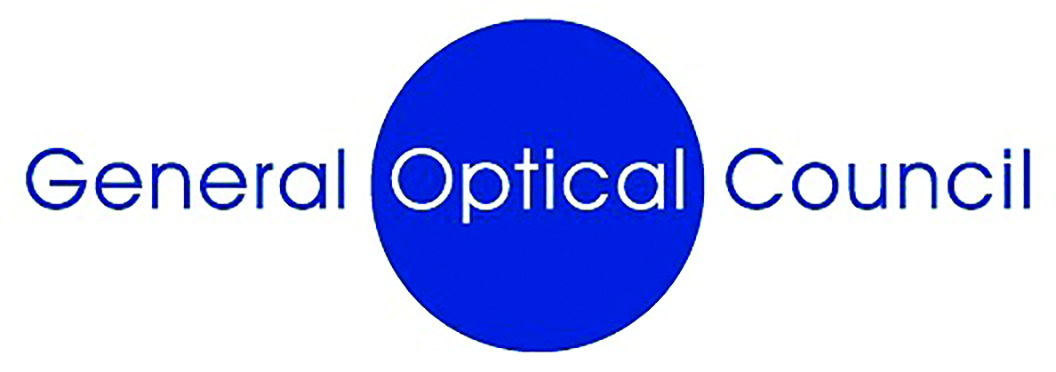
Optical Consumer Complaints Service (OCCS)
The OCCS is an independent and free mediation service funded by the GOC and currently provided by Nockolds Solicitors. The OCCS mediates impartially between patients and opticians on consumer complaints regarding goods or services where the optician’s own internal complaints procedure has been unable to resolve the matter to either party’s satisfaction. The OCCS can be contacted by the patient or the practice and applications can be made online or by post. Their eight-stage process is quite straight forward and, once it is established the complaint is appropriate to be mediated by the OCCS, the process will begin. Fitness to practice issues are referred to the GOC.
For further information go to www.opticalcomplaints.co.uk.
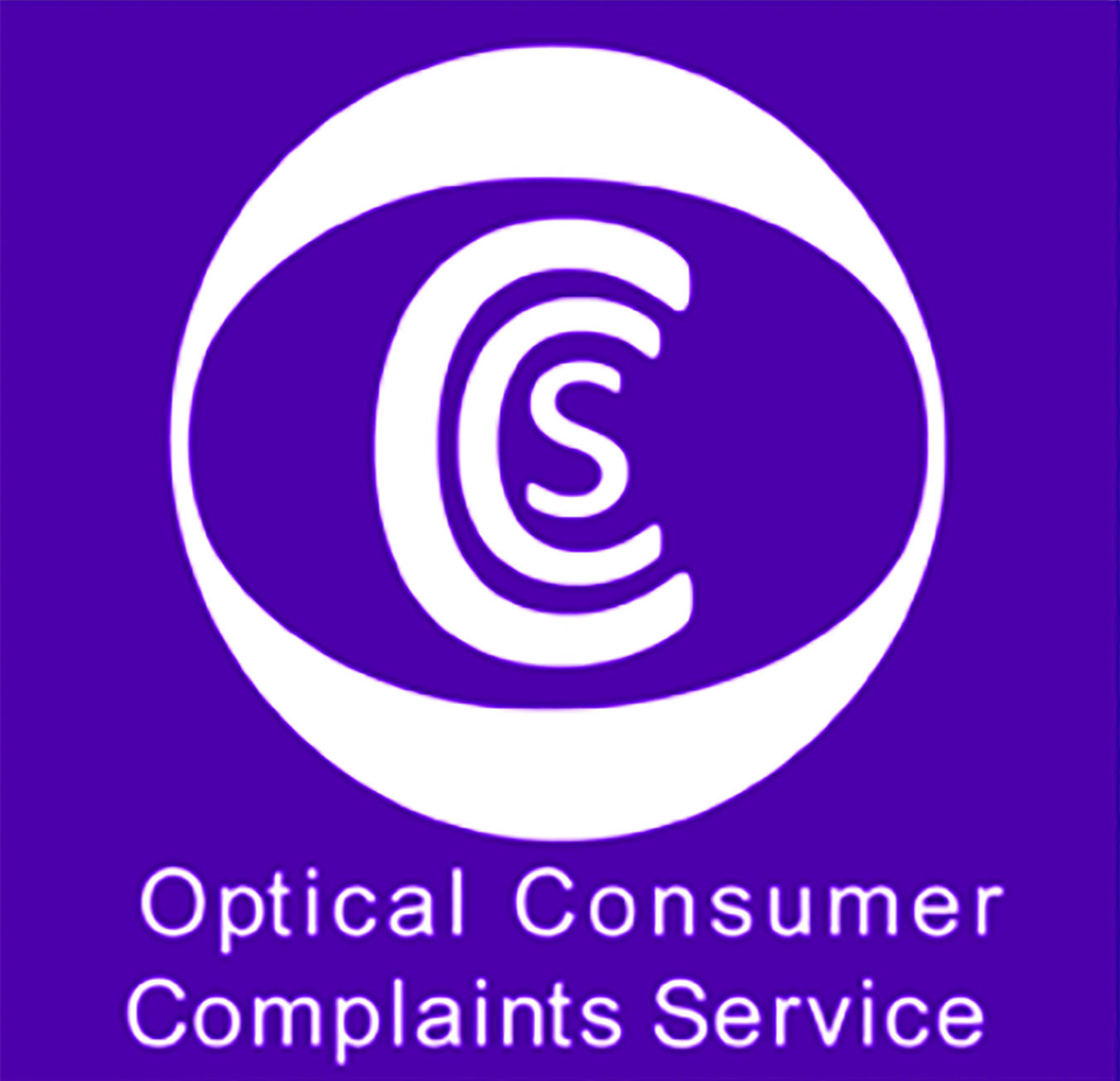
Love Your Lenses
Contact lenses are worn safely by millions of people. This website explains why it is important to treat contact lenses appropriately, and explains how this is best achieved.
Love Your Lenses activity is orchestrated by the General Optical Council with involvement and support from manufacturers, patient groups and opticians. To find out more about the campaign and how to get involved, go to; www.loveyourlenses.com. 
The Medicines & Healthcare Products Regulatory Agency (MHRA)
This is an executive agency of the Department of Health regulating medical devices (and blood products for transfusion) in the United Kingdom. Its its responsibilities include:
- Ensuring medicines, medical devices and blood components for transfusion meet applicable standards of safety, quality and efficacy.
- Ensuring the supply chain for medicines, medical devices and blood components is safe and secure.
- Promoting international standardisation and harmonisation to assure the effectiveness and safety of biological medicines.
- Helping to educate the public and healthcare professionals about the risks and benefits of medicines, medical devices and blood components, leading to safer and more effective use.
- Supporting innovation and research and development beneficial to public health.
- Influencing UK, EU and international regulatory frameworks so they are risk-proportionate and effective at protecting public health.
The Medical Devices Regulations (2002 and amended in 2008) require all medical devices to carry a CE mark. Spectacle lenses and frames are classified as class I medical devices which means manufacturers must register with the MHRA. This includes practices with in-house glazing, supplying own brand frames or remote edging spectacles assembled on site. Contact lenses are Class IIa and solutions IIb, and so do fall under the same registration category. Failure to register is a criminal offence which could result in a criminal conviction and potentially disciplinary action from the GOC.
New Medical Devices Regulations were due to come into EU and UK law in May 2020 but have been suspended due to the COVID-19 pandemic and the need for speedy approval of PPE manufacture.
Post Brexit, and post the one-year grace period, it is not clear how the UK’s relationship with the EU will work. In the event of ‘no deal,’ the MHRA would cease to be part of the European devices regulatory network or a member of the Medical Devices Coordination Group and Competent Authorities Medical Devices Network. For further information, go to www.gov.uk/government/organisations/medicines-and-healthcare-products-regulatory-agency.
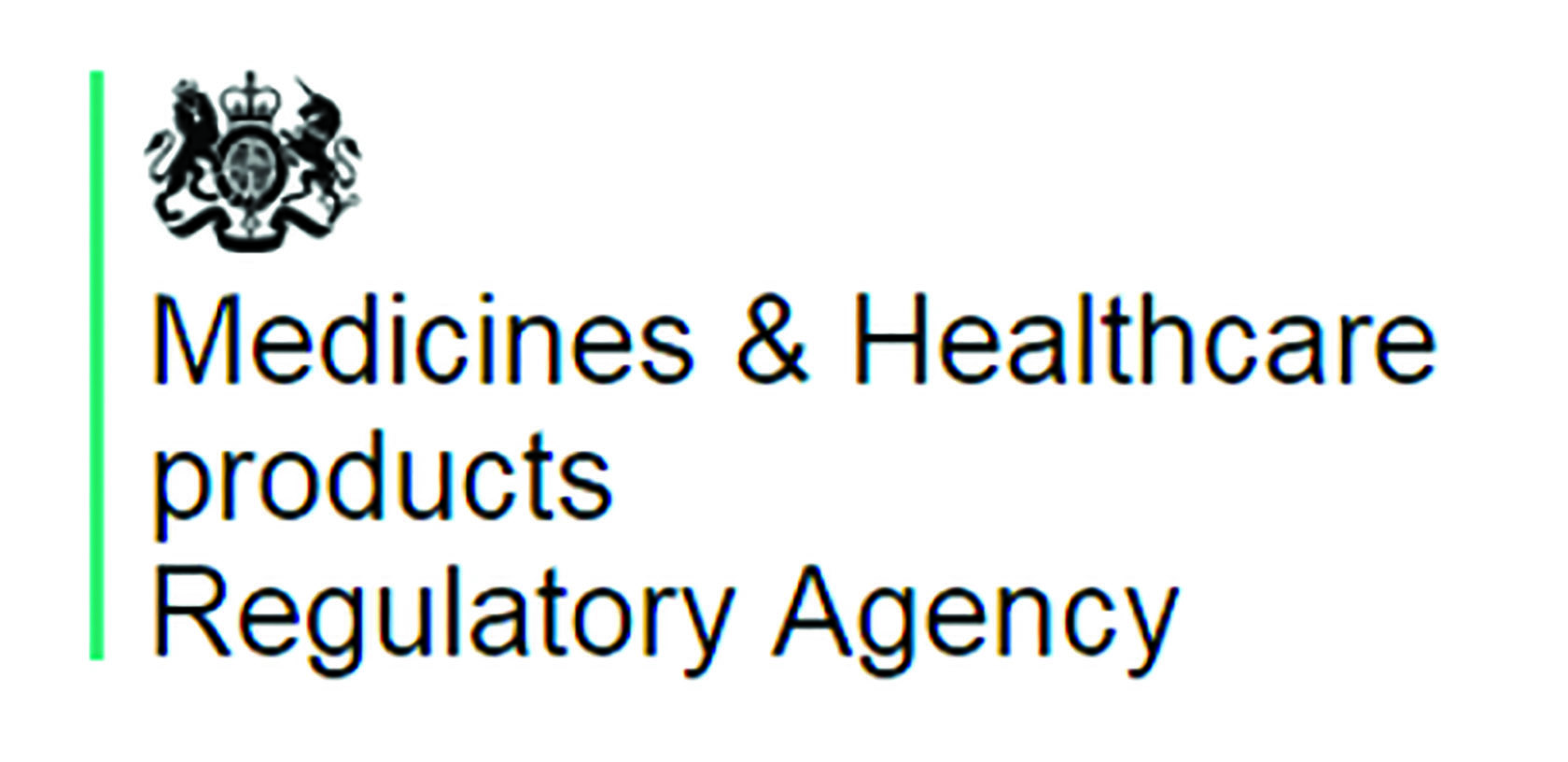
MHRA Yellow Card Scheme
The MHRA Yellow Card Scheme is a system of reporting adverse incidents and suspected problems with a medicine or medical device. Examples might include:
- A medicine, vaccine, or herbal or homeopathic remedy causes side effects.
- A person is injured (or almost injured) by a medical device, perhaps because its labelling or instructions are not clear, it is broken or has been misused.
- A patient’s treatment is interrupted because of a faulty device
- A medicine does not work properly.
- Someone receives the wrong diagnosis because of a medical device.
- A medicine is of a poor quality.
- A medicine or medical device is suspected as being
counterfeit.
It should be noted that anyone can report a problem and that most products sold by opticians (frames, ophthalmic lenses, plano-sunglasses, contact lens solutions, contact lenses, eye drops etc) are classified as Medical Devices. As such, counterfeit items and repeated quality issues should be reported. To do so, go to; https://yellowcard.mhra.gov.uk/

Professional Bodies
Association of British Dispensing Opticians (ABDO)
The Association of British Dispensing Opticians (ABDO) was formed in 1986 by the merger of the Association of Dispensing Opticians and the Faculty of Dispensing Opticians. ABDO is the professional body for dispensing opticians and their objectives are:
- To support, protect and advance the character, status and interests of dispensing opticians.
- The advancement, for the benefit of the public, of the science and art of dispensing optics and promotion of research into such science and art, provided that the useful results of any such research is disseminated for public benefit.
ABDO sets out the following aims:
- To promote the better education and training of dispensing opticians.
- To encourage the study, and improve the practice, of dispensing optics.
- To encourage suitable standards of education in dispensing optics, and to establish, continue and adjudicate a system of qualifying and higher examinations.
- To enter into any arrangements with any authorities that may seem conducive to the interests of ABDO.
- To disseminate among members and others, information on all matters affecting dispensing optics, and publish written material as appropriate.
- To give the legislative, public bodies and others, facilities of conferring with, and ascertaining the views of, persons engaged in the optical dispensing profession.
ABDO has a dual role, as both a professional body and a representative organisation for dispensing opticians, and accepts as members dispensing opticians with qualifications other than its own. As the professional body for dispensing and contact lens opticians, it is the principal awarding body for professional qualifying examinations (FBDO, FBDO CL) and also offers a variety of honours qualifications in areas such as low vision, spectacle lens design and contact lenses. ABDO issues advice and guidance to the profession on what constitutes best practice. ABDO also represents its members’ interests at the level of both the profession and individually in fitness to practice proceedings for those members that avail themselves of its professional indemnity insurance. It offers a useful legal advice line to members, a death in service benefit and a benevolent fund.
ABDO is also the largest provider of CET to dispensing opticians through its journal, Dispensing Optics, and via regional and national events.
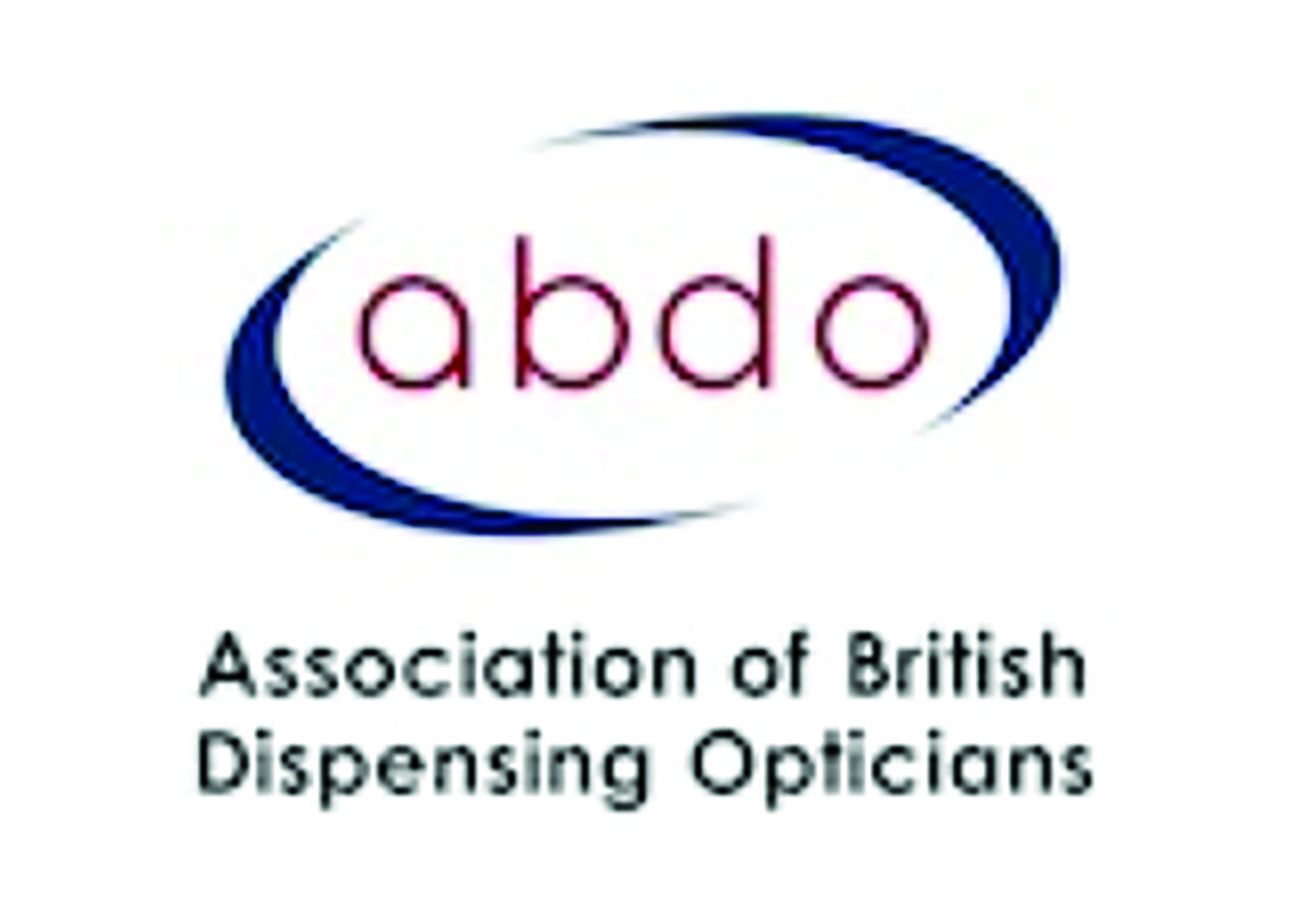
British Contact Lens Association (BCLA)
The BCLA is a professional membership organisation with a focus on anterior eye health and contact lenses. The BCLA aims to improve standards for contact lens and anterior eye practice through academic research, providing education and connecting eye health professionals. It runs a highly-regarded biennial clinical conference and exhibition, and also publishes a well-respected refereed journal, Contact Lens and Anterior Eye.
For further information, go to www.bcla.org.uk.

The Worshipful Company of Spectacle Makers (WCSM)
The WCSM is the oldest professional body in world, originally founded in 1629 by Royal Charter. It is a City of London Livery Company whose purpose is to help treat and prevent visual impairment, and was the forerunner of today’s ophthalmic regulatory and representative bodies. The WCSM previously conducted qualifying exams for the College of Optometrists until 1980 and the Association of British Dispensing Opticians until 1986. The WCSM Education Trust supports optical training by way of bursaries, while the WCSM charity awards grants to improve the quality of life for the visually impaired and their families, both nationally and internationally and with strong affiliation to the armed services. It also supports academic research and provides an independent, impartial place for all optical bodies to meet for topical discussions.
For further information, go to www.spectaclemakers.com.

The College of Optometrists
The College of Optometrists is the professional body for optometry in the UK. It offers many important membership benefits, including the affixes MCOptom/FCOptom, a professional development journal (Acuity), a CET publication (Optometry in Practice), and a top ranked optometry research journal (Ophthalmic and Physiological Optics).
The College is important in supporting optometric research, attracting funding for its own projects and also awarding over £250,000 each year to help to fund community, university and hospital-based research. The latest research and other hot topics are the basis of the annual Optometry Tomorrow conference. The College also offers a wide variety of higher qualifications (including Independent Prescribing) and is the awarding body for the vast majority of UK optometrists through its Scheme for Registration, providing training and support for assessors, examiners and practice
supervisors.
A key source of expert advice, the College offers guidance for professional practice, clinical management guidelines and the Optometrist’s Formulary, all easily accessible via a handy app. Members also have access to a library, British Standards Online, quality case studies and ethical scenarios, a multiplicity of often free CET opportunities, email alerts, and member briefings. An Open Athens password gives members access to the world’s leading optometric and ophthalmic journals.
The public facing website LookAfterYourEyes.org allows patients to locate member optometrists, and the College conducts regular media campaigns promoting the profession. It also provides members with patient leaflets, school visit presentations, and window stickers.
One further important member benefit is the Benevolent Fund, which provides short or long-term financial support for any member, past or present, of the profession in the UK and their dependent. It can also provide confidential support and advice on issues such as disability, addiction and debt. Go to www.college-optometrists.org.

Representative Bodies
Association of Optometrists (AOP)
The Association of Optometrists is the leading representative membership organisation for optometrists in the UK and supports over 82% of practising optometrists in fulfilling their professional roles. The AOP protects, supports and represents its members throughout their careers, and is the leading provider of professional indemnity insurance to individual optometrists. Formerly known as the Association of Optical Practitioners (hence the acronym), the AOP’s mission is to protect the individual professional, promote optometry and the interests of optometrists, and provide support to all members. The AOP has recently published a manifesto for change in eye care which makes the following demands:
- The NHS should commission optometrists to deliver more eye healthcare in the community, relieving pressure on overstretched hospitals.
- The NHS must set up and maintain proper IT links with community optical practices, to protect patients and support the NHS long-term plan.
- The NHS sight test fee must rise significantly in England, Wales and Northern Ireland, to better reflect the actual cost of providing the service.
- Parents need better information about children’s eye health, and public health organisations should do more to promote it.
- The postcode lottery for patients who need NHS cataract surgery must end.
- NHS eye healthcare for people with learning disabilities must improve – including proper funding for sight tests.
- All drivers in the UK should be legally required to have their vision checked when they apply for or renew their licence (every three years for people over 70, and every 10 years for others) to protect themselves and other road users.
- The General Optical Council should do more to stop the illegal supply of spectacles and contact lenses, which presents health risks to the public.
- The GOC’s rules on optometrists’ training should enable innovation, ensuring that new registrants are safe and also have the analytical skills needed to adapt to the future.
The AOP encourages its members to get directly involved in arguing for change, by lobbying their MP, raising awareness of the need for good eye health and the role optometrists play. It produces a lobbying guide for its members to see how it’s done. The AOP works collaboratively across the sector, and is able to influence other representative bodies. It also supports many other sector bodies, including LOCSU (see later). Members receive a monthly journal (Optometry Today) and access to regional and national events. For further information, go to www.aop.org.uk.
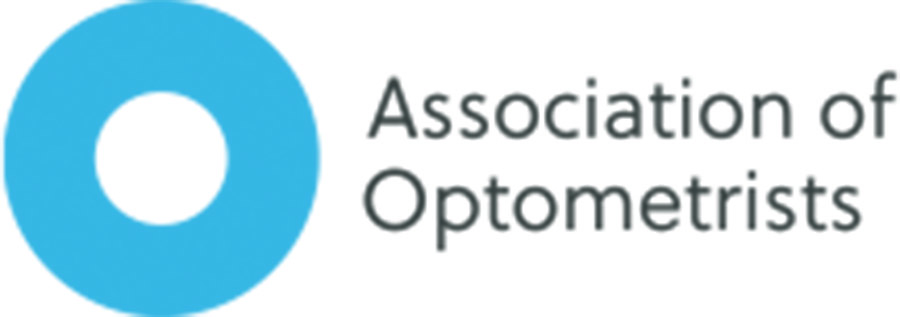
Federation of (Ophthalmic and Dispensing) Opticians (FODO)
FODO represents the interests of UK eye care professionals in the business arena, from single independent practices to the largest multinational chains. FODO claims to be the leading membership organisation for eye health providers in the UK and covers 85% of the market.
FODO works collaboratively across the sector, is a founding member of the Optical Confederation and represents its members on all cross-sector committees. Its guidance, information and advice helps members, either individuals or business, with issues ranging from accessible information to waste management. FODO is also the leading provider of practice level professional indemnity insurance, provided on on a per capita basis. FODO is also active in Ireland. It has a sister organisation, relevant to many UK optical practices offering audiology services, called the National Community Hearing Association. Go to www.fodo.com. 
The Optical Confederation (OC)
The Optical Confederation (OC) was formed in April 2010 as a coalition between the principal representative bodies: The Association of British Dispensing Opticians (ABDO); the Association of Contact Lens Manufacturers (ACLM); the Association of Optometrists (AOP); the Federation of Manufacturing Opticians (FMO) and the Federation of (Ophthalmic and Dispensing) Opticians (FODO). The OC aims to work with others to improve eye health for the public good.
It achieves this by lobbying and negotiating on behalf of the whole sector as ‘the voice of UK optics’, acting in a coordinated way for UK optical professionals, manufacturers, retailers, distributors and importers. Altogether, it represents 16,000 optometrists, 7,000 dispensing opticians and 7,000 optical businesses in the UK.
The OC believes optometrists and opticians need to be able to deliver a service which ensures that patients have access to eye care through the provider of their choice, whether in the community, in their own home or in eye clinics. Working with partner organisations, the Confederation achieves these objectives by sharing information, aligning views and coordinating action wherever possible. It states that its members ‘stand for the delivery of high-quality services and products for all, on the basis of choice, delivered by open, fair and competitive markets. The Confederation will challenge anti-competitive behaviours wherever they occur.’ The OC’s mission is to speak with a single, authoritative voice to the Westminster government, influencers and decision makers for the UK optical sector.
At the time of writing, it is unclear whether the OC remains an active concern. Its most important work to date has been to galvanise support for the Foresight Report, whose research took a medium to long term view of the effect of technology upon the future of optometric practice in the UK. This can be downloaded from the member organisations’ websites. Go to www.optical
confederation.org.uk.

Clinical Council for Eye Health Commissioning (CCEHC)
The Clinical Council for Eye Health Commissioning (CCEHC) is an independent advisory body made up of representatives from the leading organisations across the eye healthcare sector. These include:
- The Royal College of Ophthalmologists
- The College of Optometrists
- The Association of British Dispensing Opticians
- Association of Directors of Adult Social Services
- Association of British Dispensing Opticians
- British and Irish Orthoptic Society
- Faculty of Public Health
- Local Optical Committee Support Unit
- Optical Confederation
- Royal College of General Practitioners
- Royal College of Nursing
- Royal National Institute of Blind People
- Vision UK
The CCEHC provides evidence-based guidance to key government policy makers and those commissioning and providing eye health services in England. The CCEHC’s recommendations are provided in the best interests of patients based on available evidence and independent of professional or commercial interests.

Association for Independent Optometrists and Dispensing Opticians (AIO)
The origins of the Association for Independent Optometrists and Dispensing Opticians (AIO) dates back to 1948, at the time the NHS was formed. At this time, there was a lack of professional guidance for practitioners. Founded by two ophthalmic opticians under the initial title ‘Optical Practitioners Standing Conference’ (OPSC), its aim was to create a setting where like-minded practitioners could share ideas and attend lectures. In 2003, it became the AIO, which more accurately reflected its members, and holds annual conferences which offer an opportunity for independent practitioners to meet, share ideas on delivering clinical patient care, and provides a wide range of CET. Further information, go to www.aiovision.org.
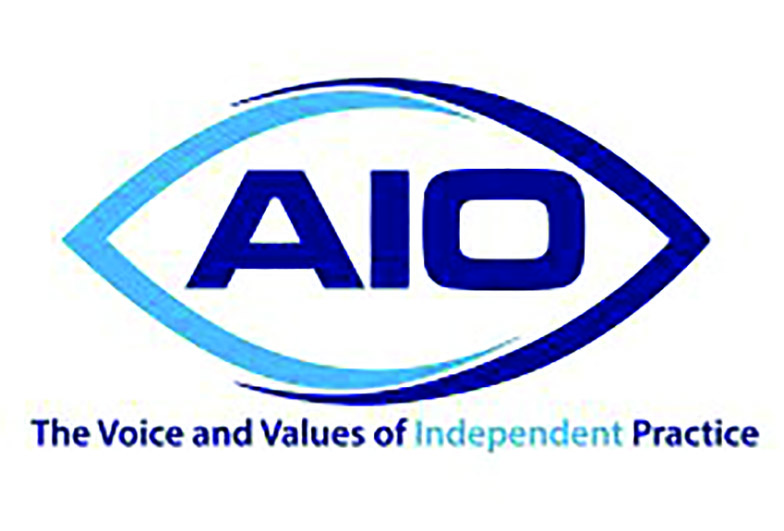
Local Optical Committee Support Unit (LOCSU)
The Local Optical Committee Support Unit (LOCSU) supports Local Optical Committees (LOCs) in England across a spectrum of activities. This support is delivered through practical hands-on engagement via a network of Optical Leads, as well as through services provided to LOCs remotely by the national team. LOCSU issues guidance to LOCs, including the formulation of a Model Constitution and how to run an LOC.
Local Optical Committees were set up to be the official representatives for all GOS contractors and practitioners within their locality, and to work with their local clinical commissioning groups (CCGs) on matters relating to NHS optical services. LOCs fulfil a number of important functions. These include:
- Informing, advising and negotiating with local NHS England teams and CCGs on matters including delivering GOS, delivering local extended primary care services, and acting on other issues relevant to the local optical community
- Responding to relevant consultations
- Facilitating and encouraging local contractors and performers to formulate collective views
- Disseminating information among local contractors and performers to help them to understand and comply with their duties
- Conveying the views of local contractors and performers to the national representative bodies
- Contributing to the development of national policies
- Liaising with other LOCs and LOCSU to support the LOC in developing and achieving their objectives
- Obtaining support, advice and training services from LOCSU and/or the national representative bodies
Most LOCs have their own website, and GOS contractors and performers can contact them directly for details of local protocols, services, LOC meetings, AGMs, and CET events. Find all LOCs via this website: www.loc-online.co.uk.
Optometry Scotland, Optometry Wales and Optometry Northern Ireland fulfil LOCSU’s role in their respective locations. LOCSU has been instrumental in shaping the gradual improvement of services from Primary Care Support England since its inception a few years ago. LOCSU also runs a highly successful gathering for LOC committee members each year; the National Optical Conference. For further information, go to www.locsu.co.uk.

Optometry Northern Ireland
Optometry Northern Ireland was established from the negotiating committee for Northern Ireland, with representation from optometrists, dispensing opticians and LOCs. It provides a united voice, ensuring awareness of the profession in the Northern Ireland Department of Health, among politicians and in the media. Go to www.optometryni.co.uk.

Optometry Wales
Optometry Wales is a professional organisation representing and working on behalf of optometrists, dispensing opticians and opticians across Wales. It works with the Welsh government, the Welsh Optometric Postgraduate Education Centre (WOPEC), NHS Wales, the voluntary sector and the Welsh Optometric Committee (WOC) to maintain standards in eye care. Go to www.optometrywales.org.uk.

Optometry Scotland (OS)
Optometry Scotland (OS) represents the views of the optical sector in Scotland (including optometrists, dispensing opticians and optical bodies corporate) to the Scottish Parliament, the Scottish Government Health Directorates and other stakeholders.
OS seeks to establish clear aims and objectives and to communicate these with industry. It has been able to secure appropriate funding and works with industry stakeholders and the media, raising awareness of the importance of optometry in the primary care sector. Go to www.optometryscotland.org.uk. 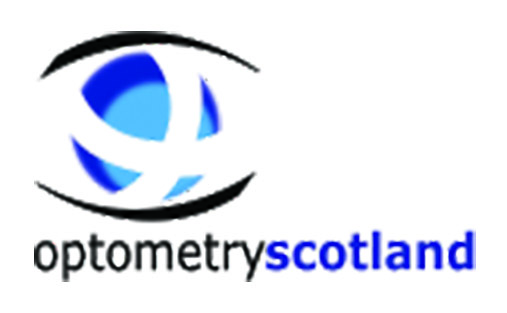
Optometric Fees Negotiating Committee (OFNC)
The Optometric Fees Negotiating Committee (OFNC) was little heard of until recently, when its prominent role in issuing advice in relation to the coronavirus pandemic brought it to the attention of most registered opticians across the UK via joint statements with Optometry Scotland, Optometry Wales, and Optometry Northern Ireland. Its role in negotiating with NHS England to get clear guidance on the suspension of routine eye care services, emergency eyecare provision and GOS support payments suddenly had registrants asking, ‘Who is the OFNC?’ This lack of awareness was one major reason for producing this article.
The OFNC comprises representatives of ABDO, AOP, FODO and the British Medical Association (BMA), the latter representing ophthalmic medical practitioners. A key role is to negotiate GOS sight test fees, voucher values, and the CET and pre-registration optometrist training grants each year.
The NHS England letter to the OFNC outlining GOS provision and other guidance during COVID-19 can be found at www.england.nhs.uk/coronavirus/wp-content/uploads/sites/52/2020/04/C0127-optical-letter-1-april-2020.pdf, while further advice related to OFNC communications can be found on the AOP, FODO and ABDO websites.

Industry Bodies
Association of Contact Lens Manufacturers (ACLM)
The Association of Contact Lens Manufacturers (ACLM) was established in 1962 to publicise the work of UK contact lens manufacturers, to help develop new products, and to raise standards in contact lens practice. The ACLM works with UK optical bodies and regulatory authorities, such as the MHRA, and represents interests of manufacturers and wholesalers of over 95% of all prescription contact lenses and aftercare products. It operates internationally (via membership of organisations such as EuromContact) and lobbies organisations (such as national governments and the European Union) on issues relating to contact lenses as Medical Devices.
The ACLM is widely known for its publication of the ACLM Contact Lens Yearbook, a comprehensive guide to available contact lenses. This can be purchased from their website and is available free to BCLA members. Go to; www.aclm.org.uk

Federation of Manufacturing Opticians (FMO)
The Federation of Manufacturing Opticians (FMO) represents companies engaged in the manufacturing, distribution and supply of spectacle frames and ophthalmic lenses, ophthalmic instruments and equipment, contact lenses and optical accessories, as well as providers of IT and business services to optical practices.
A founding member of the Optical Confederation, the FMO works closely with the OC member organisations, as well as the BCLA, College of Optometrists and other professional associations and trade bodies, partners and stakeholders to address the challenges and opportunities presented by a rapidly changing industry. Its members benefit from a ‘bad payers list’ which highlights optical practices with a bad credit history. The FMO Standards Panel plays a key role in representing the UK optical sector in both British Standards Institute and the wider International Standards Organisation. The FMO is best known for its annual trade show (Optrafair) which boasts the largest exhibition of optical products outside of London. The FMO also represents the UK in Europe, via the European Federation of Precision Mechanical and Optical Industries. Go to https://fmo.co.uk.

International Bodies
European Council of Optometry and Optics (ECOO)
The European Council of Optometry and Optics (ECOO) is a pan-European organisation which represents the interests of over 75,000 optometrists and opticians from the 24 countries that make up its membership. For 60 years, it has aimed to promote eye health to the public across borders and to harmonise clinical and educational standards of optometric and optical practice throughout Europe.
ECOO aims to improve vision and eye health by providing high-quality, cost-effective optometric and optical services across Europe. Its mission includes the following aims:
- To improve eye health and vision for all, and to eliminate avoidable blindness and visual impairment throughout Europe.
- To create a harmonised professional and educational system for optometry and optics based on the European Diploma in Optometry and the Qualification in Optics.
- To develop the scope of practice for optometrists and opticians to the degree that the same high standards apply and are mutually recognised in all European countries.
ECOO offers a platform for the exchange of information among members and supports its members in their national advocacy, in addition to representing professional interests at the European level. ECOO is currently establishing an accreditation process for the European Diploma in Optometry and the European Qualification in Optics. It also seeks to influence European policy on issues such as vision and driving, Medical Devices regulations, the prevention of blindness, EN Standards, display screen equipment legislation and the promotion of optometry and optics. It is an important data repository, and its Blue Book provides important updates on the changing scope of practice and the numbers of eye healthcare professionals in member countries. Go to www.ecoo.info.

Joint Optical Committee to Europe (JOCEU)
The Joint Optical Committee to Europe (JOCEU) is the UK body that represents UK optics and optometry to the General Assembly of the European Council of Optometry and Optics (ECOO). It comprises representatives from ABDO, AOP, College of Optometrists, FODO and the General Optical Council and agrees the UK stance on European optical issues.
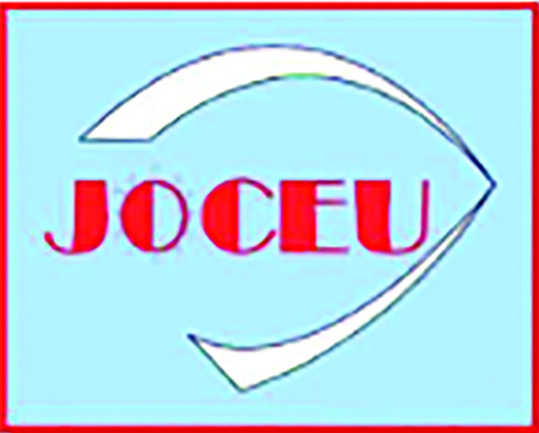
European Academy of Optometry and Optics (EAOO)
The European Academy of Optometry and Optics (EAOO) aims to be the leading European eye care professional networking organisation by harmonising and raising standards in optometry and optics across Europe. The Academy has connected eye care professionals with their peers all across Europe ever since it was founded and offer an annual conference offering education and the sharing of research. Go to; https://eaoo.info
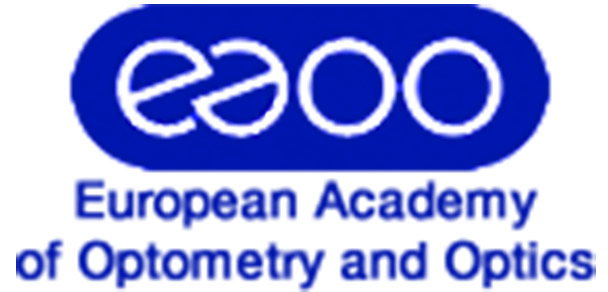
International Opticians Association (IOA)
The International Opticians Association (IOA) brings together optical practitioners from around the world providing a forum for educators, industry and practitioners to discuss topics impacting the sector and development of the profession to deliver world class eyecare. ABDO is the current secretariat. Go to; www.ioassn.org

World Council of Optometry (WCO)
The World Council of Optometry (WCO) is the only optical organisation recognised by the World Health Organisation. Its aim is the worldwide improvement and conservation of human vision where optometry makes high quality eye health and vision care accessible to all people. This, it believes, it will achieve by facilitating the development of optometry around the world and supporting optometrists in promoting eye health and vision care as a human right through advocacy, education, policy development and humanitarian outreach. Its objectives include:
- The enhancement and development of primary eye and vision care by optometrists.
- The promotion of high standards of education and practice by optometrists including by the promotion of international co-ordination of optometrists.
- The provision of support to aid programmes directed at the provision of eye and vision care to societies in need.
- The promotion of the advancement of the science of optometry.
The WCO therefore sets itself against the majority of eyecare practitioners worldwide, as it is positioned against stand-alone refraction by opticians, which alongside ophthalmology is the most common method of eyecare provision, and flies in the face of its own assertion that uncorrected refracted error is the biggest cause of functional blindness worldwide. Go to; http://worldcouncilofoptometry.info/

Peter Black MBA FBDO FEAOO is senior lecturer in ophthalmic dispensing at the University of Central Lancashire, Preston, and is a practical examiner, practice assessor, exam script marker, and past president of the Association of British Dispensing Opticians.
Tina Arbon Black BSc (Hons) FBDO CL is director of accredited CET provider Orbita Black Limited, an ABDO practical examiner, practice assessor and exam script marker, and a distance learning tutor for ABDO College.
